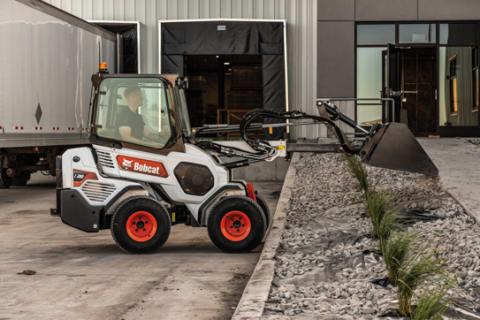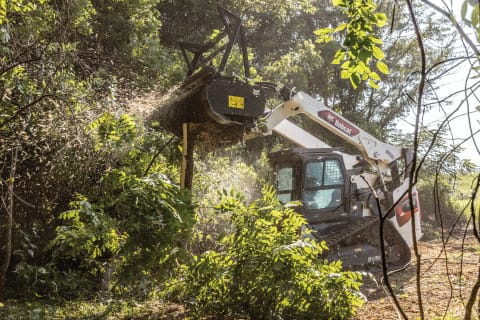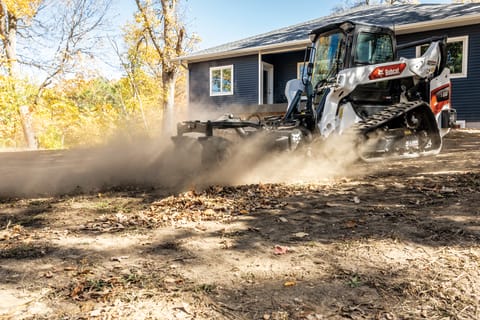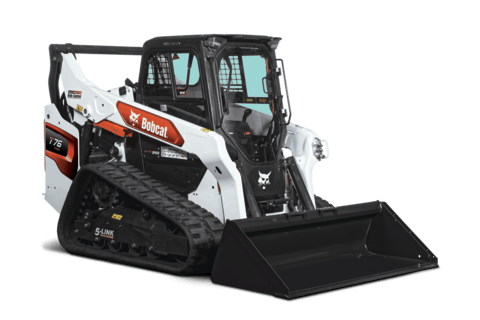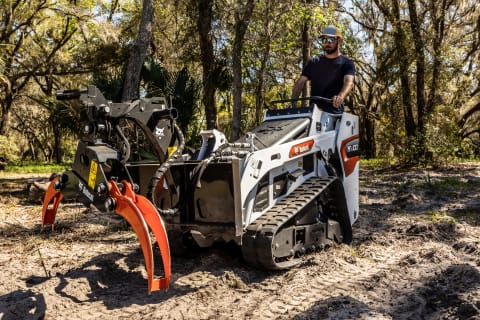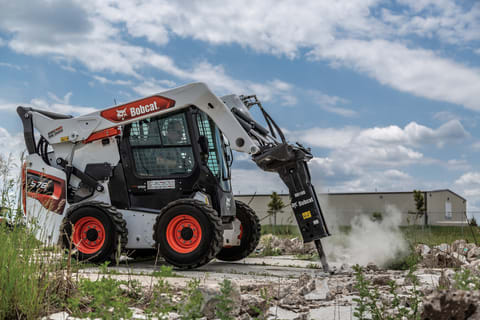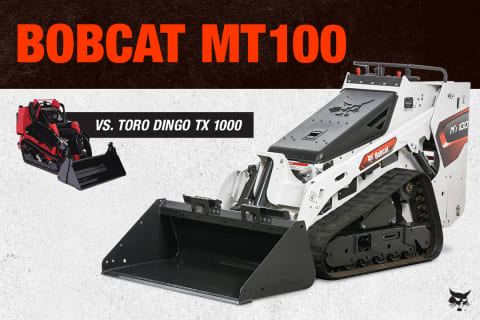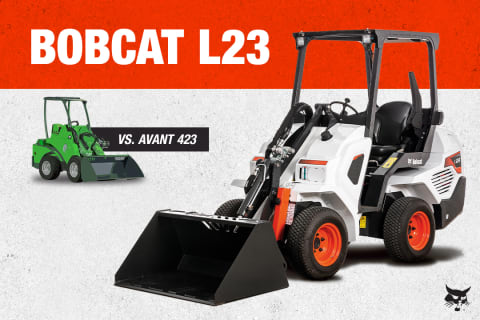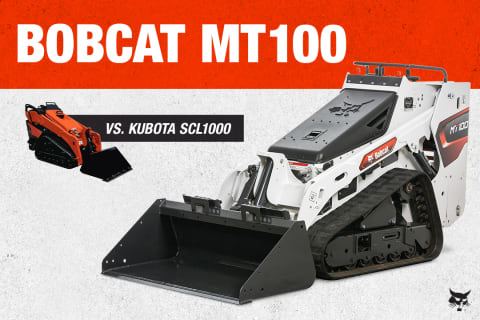- Home
- Buying Resources
- Loaders
- How to Evaluate Your Dealer’s Maintenance Expertise
Build Your Loader, Get a Free Price Quote
Customize your loader. Select the model, choose options, and submit to your local dealer for a free price quote.
Build & QuoteHow to Evaluate Your Dealer’s Maintenance Expertise
Published on December 30, 2014
You’re busy on the jobsite meeting deadlines, so it’s not always easy staying ahead of routine maintenance work. Not to mention, any new compact machines you’ve purchased in the past three years typically have more advanced service needs than their predecessors. That’s why it’s important to re-evaluate who can most cost-effectively maintain your compact excavators and loaders — you or your dealer?
It’s important to weigh your productivity against three factors:
- Your company’s capabilities
- Your dealership’s capabilities
- Your opportunity costs
Evaluating these core competencies can help you make the right decision about the type of maintenance you can manage versus what you might need a dealership’s assistance to complete.
Assess Capabilities and Efficiencies.
One of your first tasks is to review a machine’s operation and maintenance manuals, and then evaluate your company’s technical skill sets and efficiencies. Fewer companies are doing more than daily maintenance and visual checks if they don’t have a technician on staff.
The other consideration is matching technical skill to the age of the fleet. You need to know if your technicians are maintaining older-generation machines or new machines with advanced electronic systems, diagnostic packages and EPA-compliant emissions controls that require specialized — and sometimes proprietary — electronic testing equipment.
Evaluate Dealership Expertise.
One of the biggest advantages to using a dealership service is having trained technicians with access to the latest information, resources and tools. They know what to inspect and understand the iT4 and Tier 4 systems. Dealerships also have access to tools and software for calibrations and diagnostics that are not available to most customers.
Equipment dealerships can provide a variety of planned maintenance contracts on purchased or leased machines. Some dealerships have hundreds of machines under contract with participation that ranges from performing warranty work to providing monthly, quarterly, annual or even biennial services.
A growing option that more dealerships are implementing is mobile field service. Many dealerships stock service trucks with key parts and components to conduct on-site routine maintenance and repairs. Some dealerships do more mobile service than shop work.
Evaluate Opportunity Costs.
An overlooked consideration in the maintenance decision is opportunity cost. This involves an analysis of savings gained from performing your own maintenance with the revenue that can be generated from being on the job longer. Opportunity costs can vary based on rates and accurate time estimates.
If it takes you four hours to change oil and you’re making $150 an hour in your operation, that’s $600 of lost revenue. The same work may take two hours at the dealership at $100 per hour. It may not make sense to take a machine out of service for half a day when a dealer can do it in significantly less time. Using the dealership may not be the cheapest option, but it may return the best opportunity cost, be the most convenient and reduce downtime.
Explore More Loader Resources
View All Articles- Small Articulated Loaders Productivity for Grounds Maintenance
Small Articulated Loaders Productivity for Grounds Maintenance
Learn about how versatile and powerful small articulated loaders increase productivity and their advantages for ground-maintenance and landscaping professions. - How Compact Loaders are Beneficial for Forestry Work
How Compact Loaders are Beneficial for Forestry Work
Learn how Bobcat compact track loaders and skid-steer loaders provide versatility with attachments and machine power to increase your productivity for forestry work. - Landscaping Attachments for Compact Loaders
Landscaping Attachments for Compact Loaders
Explore the top landscaping attachments for your compact loaders, like compact track loaders for versatile productivity and power on the job. - Section 179 Tax Deduction for Compact Equipment
Section 179 Tax Deduction for Compact Equipment
Leverage IRS Section 179 for small business tax benefits to deduct the full purchase (or lease) on qualifying compact equipment during the tax year. Learn more. - Top Attachments for Mini Track Loaders
Top Attachments for Mini Track Loaders
Discover the top attachments from the 24 available for the Bobcat Mini Track Loaders for job-specific landscaping, grounds maintenance and forestry challenges. - Bobcat Attachments for Concrete Work with Compact Loaders
Bobcat Attachments for Concrete Work with Compact Loaders
Learn why Bobcat loaders are the machines of choice for concrete contractors with the productivity increase of Bobcat attachments specifically for concrete work. - How to Choose Compact Track Loader Tracks
How to Choose Compact Track Loader Tracks
The right compact track loader tracks can improve your machine’s performance, minimize ground disturbance and extend your working season in wetter months. - Bobcat MT100 vs. Toro Dingo TX 1000
Bobcat MT100 vs. Toro Dingo TX 1000
When choosing a mini track loader, it is important to examine key features and benefits. Explore how the Bobcat MT100 stacks up against the Toro Dingo TX 1000. - Bobcat L23 vs. Avant 423 Small Articulated Loaders
Bobcat L23 vs. Avant 423 Small Articulated Loaders
When choosing a small articulated loader, it can be overwhelming from the options. Explore this comparison of two popular options: the Bobcat L23 and Avant 423. - Bobcat MT100 vs Kubota SCL1000
Bobcat MT100 vs Kubota SCL1000
Every feature and specification matters, to obtain maximum production and output from a mini track loader. Compare the Bobcat MT100 against the Kubota SCL 1000.
